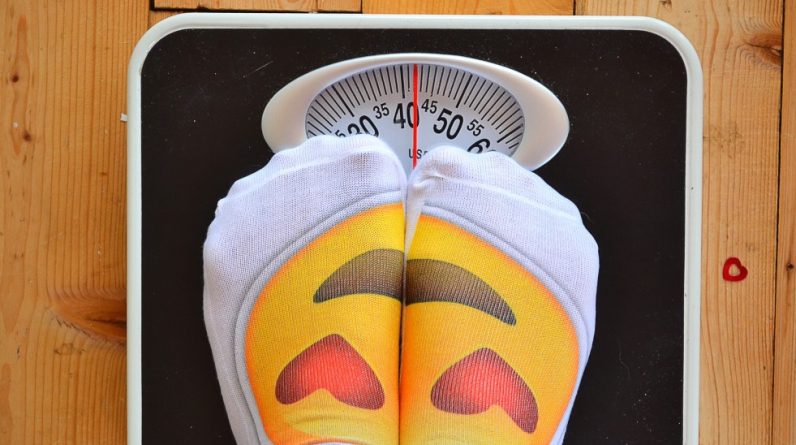
The problem with a quick and easy weight loss fix is that it usually leads to quick and easy weight gain soon after. There are hundreds of tips to lose weight and you may be tired of hearing the same advice over and over again. The truth is that there are no new weight loss tips. The same honest truth of yesterday is the truth of today. Losing weight requires you to change your eating habits, exercise more, and lead an overall healthy lifestyle. A certain weight loss program can help you lose the first few pounds you need and give you tips on how to keep them off, but the rest is up to you. Going straight back to your old habits won’t help you stay fit or healthy.
Before choosing a weight loss program, let’s go over those tips again. Put them into practice this time: lose weight and keep it off.
Lose weight for the right reasons
Before you even look at a diet plan or exercise plan, you must first see why you want to lose weight. If you want to improve your health, look better, and feel better, great! If you want to be able to play more with your kids, great. Trying to get your ex back, to look better than the neighbor, or because your partner tells you to, is not so good. The best motivation to lose weight is to do it for yourself, not for anyone else. Health reasons should come first, because being overweight can cause health problems that will affect you for the rest of your life.
Choose a weight loss program carefully
You have to be realistic when choosing how to lose weight. Your lifestyle may not fit all types of programs or diets, and if you choose one that you can’t adjust to or handle, you’re setting yourself up for failure. Look at your current eating habits, exercise level, work schedule, family and social life.
Think realistically about how much change each of those areas can support. For example, if you don’t exercise at all, you’ll have trouble with a weight loss program that requires vigorous exercise from the start. If you eat out regularly, you need a diet that offers a wider variety of foods to accommodate that. Counting calories can be time consuming, so if you have a busy schedule, you may want a diet that plans everything out for you or gives you more flexibility. Try not to get sucked into the promise of losing a certain number of pounds in a certain period of time – everyone loses weight at a different rate and the only way to guarantee that you will lose weight is to follow the instructions to the letter.
set realistic goals
This cannot be repeated enough. Setting goals that are nearly impossible to achieve only sets you up for failure, disappointment, and misery. Break your goal down into smaller, more achievable steps. Monthly or weekly goals are easier to achieve. Make sure your goals represent healthy weight loss, which in most cases means gradual weight loss leading to a healthy weight for your age, gender, height, and body type.
write it all down
Whether you call it a food journal or a success journal (I personally prefer the latter), make it a habit to record your eating habits, and preferably start doing so before embarking on a weight loss program. Record what you eat, when you eat, and why you eat. Why You Eat will help you identify what triggers unhealthy eating habits that may have led to weight gain. Boredom, loneliness, anger, frustration, and stress can often lead us to unhealthy snacks and comfort food, even though we know it’s not good for us. Use your journal or journal to record your goals and your progress.
Program for success, but expect some bad days
Forget all the diets you’ve been doing in the past! Set yourself up for success in this case, but accept that there will be bad days, and even bad weeks. Nobody is perfect, and you will have a day or two when it will be too much for you. You may be skipping a workout, or just can’t resist the donuts your colleague brought to work. It’s okay to slip up! It is NOT okay to give up. One bad day, one bad decision, or even a series of them, doesn’t mean you’ve failed. It just means you had a bad day. Tomorrow doesn’t have to be the same, so get started right away.
get support
Whether it’s friends, family, or an online group, make sure you have people there to support and cheer you on, especially on those bad days. There are thousands of people in online groups sharing their experiences with different diets and weight loss programs, they have been through the same struggles you may be facing, and many have had success. Read their stories, chat with them, and learn from their mistakes.
Exercise
Like it or not, some form of exercise should be part of a healthy lifestyle. It not only helps you lose weight, but also helps you maintain weight loss. Of course, the health benefits are a big factor: even if you’re skinny, exercise is good for you. You will find that the usual recommendation is between 30 and 45 minutes of exercise three times a week. Recent research indicates that those thirty minutes can be divided into three 10-minute sessions, with the same results. 10 minutes is often easier to fit into a busy schedule, and the exercise you get will boost your metabolism throughout the day. Your exercise program should include activities that you enjoy doing. If you don’t enjoy it, you will find every excuse not to do it, or you will be miserable if you do. One of the three factors most likely to lead to successful weight loss is having exercise equipment at home, so that may be one avenue to explore as well.
Eating
Whether you’re following a specific diet, counting calories, or just eating fewer “bad” foods, there are a few things that can help.
eat slowly From the moment you start eating, it takes 20 minutes for your brain to register a feeling of fullness. If you swallow your food in less time, you won’t know you’re too full until it’s too late. Stop eating when you feel full, not stuffed.
Watch those portions, especially when dining out. Eat half the meal and take the rest home in a to-go box. Use smaller plates at home – a great way to make sure you don’t serve too much, but your plate still looks nice and full.
Be careful with salt, limit high-fat foods, replace red meat with lean poultry and fish, and drink plenty of water. Don’t skip meals, especially breakfast, as this is the meal that kickstarts your metabolism and powers the rest of the day.
graph your progress
Tracking your progress, including slow or stalled periods of loss, will help you see what helps you succeed, what causes problems, and when to celebrate. Don’t compare yourself to anyone else, even if they follow the exact same plan as you. Everyone loses weight at a different rate, due to differences in metabolism, muscle tone, and body type.
If your progress has stalled, especially towards the end of your diet, you may have hit a dead end. The best way to overcome this is to change something. Work out in the morning instead of at night, swap carbs for protein and vice versa at a few meals, or even take a break for a few days. A plateau means your body is in a rut, and often it only takes a little jolt to get back to work and lose weight.
Keep, keep, keep!
It’s common sense that once you’ve lost weight, your old habits will resurface, the weight will come back, but many fall into that trap. Either your diet was so radical that it is impossible to continue in real life, or the weight loss program did not explain how the dietary changes made to lose weight could be modified to maintain your new weight. After completing your "diet", you should have a better idea of what to eat, when to eat it, and how to eat it. You should feel the benefits of regular exercise and actually be able to exercise more because you are now fitter and stronger. Adapting your weight loss program to a new healthy lifestyle and weight loss program should be a priority.
While these tips may seem like common sense, outdated, or just plain old repetition, that doesn’t mean you’ll heed them. Most of us know when we eat the wrong foods or don’t get enough exercise, but that’s not always enough. You have to take action to change your life, and there are no shortcuts. A weight loss program can help you lose weight, but you should avoid it. It’s not easy to lose weight and nobody likes change, but if you want to improve your health and well-being, you’re going to have to put in some work to be healthy. However, the results will be worth it.






